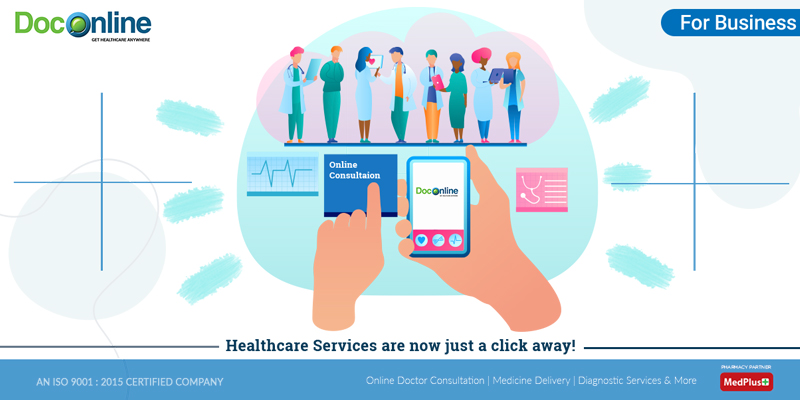Unlocking the Secrets of Subscription Based Healthcare for Better Patient Outcomes
Unlocking the Secrets of Subscription Based Healthcare for Better Patient Outcomes
Blog Article
The Surge of Subscription-Based Health Care and Its Influence On Person Care
As healthcare develops, the subscription-based model is gaining traction, guaranteeing to change individual treatment by using predictability and availability. These versions, which bypass standard insurance, could redefine the patient-doctor dynamic, highlighting personalized and preventative treatment. Yet, as with any type of innovation, they provide challenges, particularly concerning equitable accessibility for all socioeconomic teams. The possibility for these designs to reshape health care shipment increases pushing inquiries about their long-term sustainability and inclusivity. Are these membership solutions the future of health care, or do they run the risk of leaving vulnerable populations behind? The ins and outs of this change warrant a better evaluation.
Understanding Membership Medical Care Versions
Comprehending the concept of membership health care models involves examining a transformative method to medical services that emphasizes cost and accessibility. These models, commonly referred to as straight medical care (DPC) or concierge medication, have actually emerged as cutting-edge alternatives to typical fee-for-service health care systems. Registration medical care allows clients to pay a set month-to-month or annual fee for a specified collection of clinical services, which may consist of endless office brows through, routine examinations, and standard lab tests, without the requirement for typical insurance coverage payment.
The structure of membership healthcare designs is made to improve individual care by eliminating third-party payers and intricate billing codes, therefore decreasing management problems. Doctor can focus a lot more on person care, promoting more powerful patient-provider partnerships. This version additionally promotes preventative care by urging regular check outs, as the monetary obstacle of per-visit charges is removed.
The subscription model typically equips health care carriers to take care of smaller sized individual panels, permitting even more tailored treatment. It lines up financial incentives with individual health and wellness results, as companies are motivated to maintain person contentment and wellness. Generally, comprehending subscription healthcare versions needs recognizing their possible to improve how care is supplied and accessed.
Advantages for Clients and Service Providers

For suppliers, subscription-based versions offer the opportunity to deepen patient-provider connections. With a stable profits stream, health care specialists can commit even more time to every individual, causing an extra personalized and comprehensive treatment experience. This design also decreases reliance on high patient volumes, alleviating burnout and enhancing job complete satisfaction. Additionally, the emphasis on preventive care within membership plans can lead to much better client outcomes and reduced lasting health care expenses. By focusing on continual care, carriers can attend to problems before they escalate, inevitably benefiting the healthcare system in its entirety by decreasing the burden on emergency and severe treatment services.
Issues and obstacles
While subscription-based healthcare models existing countless advantages, they additionally come with a collection of difficulties and worries that need to be attended to. This increases honest concerns regarding fair access to health care services.
Financial sustainability of subscription-based versions is an additional problem. Carriers should balance the fixed earnings from subscriptions with the variable costs of medical care services, which may change as a result of unanticipated clinical requirements. This can produce pressure to restrict services or increase fees, possibly affecting patient fulfillment and care high quality.
Moreover, governing oversight of subscription-based health care versions is still evolving. Dealing with these obstacles is important for the effective and fair execution of subscription-based health care.
Effect On Patient-Doctor Relationships
One considerable effect of subscription-based explanation healthcare models on patient-doctor connections is the potential for boosted connection and personalized treatment. By adopting a membership version, physicians can manage a smaller sized patient panel, enabling even more committed time with each individual. This raised accessibility promotes a much deeper understanding of a patient's medical background, lifestyle, and choices, making it possible for much more customized therapy plans and interventions.

However, it is very important to recognize that while subscription-based models might profit those that can afford them, they might unintentionally broaden health care differences. Individuals who are unable to join these versions may experience reduced access to customized care, possibly affecting their connections with doctor. Thus, while the membership design uses encouraging advantages for patient-doctor partnerships, it likewise poses challenges that require to be dealt with to make sure equitable health care gain access to.
Future of Medical Care Accessibility

The role of modern technology can not be overlooked in this makeover. Telemedicine systems and electronic health and wellness documents promote smooth interaction between patients and medical care providers, damaging down geographical and logistical obstacles. In addition, innovations in man-made knowledge and information analytics can further customize treatment by predicting patient requirements and enhancing treatment plans.
Nevertheless, the future of health care accessibility also provides challenges, such as making certain equity throughout various socio-economic teams. Policymakers and doctor must work together to link the electronic divide, guaranteeing Look At This that subscription-based models remain comprehensive and budget-friendly. As these systems mature, they hold the promise of making health care much more easily accessible, effective, and patient-centric.
Final Thought
Subscription-based health care models are reshaping patient treatment by giving a secure expense structure and boosting access. These models strengthen patient-provider connections through individualized treatment and regular check outs, highlighting preventative health. Regardless of these benefits, difficulties such as ease of access concerns for low-income populaces and the need for equitable medical care remedies linger. The rise of subscription-based healthcare encourages content proactive individual involvement, which has the possible to boost individual end results and contentment, signifying a transformative change in medical care shipment.
As healthcare advances, the subscription-based design is getting traction, promising to revolutionize person care by providing predictability and access.Subscription-based health care models offer distinct advantages for both clients and suppliers, improving the total healthcare experience.As health care systems evolve, the future of medical care accessibility regularly hinges on the combination of ingenious models and innovations.Subscription-based medical care models are reshaping person care by supplying a steady expense structure and boosting ease of access. The surge of subscription-based medical care motivates proactive individual engagement, which has the prospective to improve person results and contentment, signifying a transformative change in medical care shipment.
Report this page